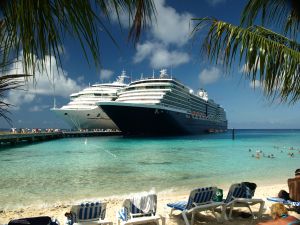206.624.8844
Major Cruise Lines Release Shipboard Crime Statistics
 The three largest cruise lines based in the United States, Carnival Corp., Royal Caribbean, and Norwegian Cruise Line, began posting data related to shipboard crime earlier this month. The decision to post the data was announced last month and data was posted on August 1. Disney Cruise Line followed suit but did not reveal its decision until after the data was already posted on its website. The data reveals many more crimes were reported on cruise vessels than had previously been made public. Although the companies began disclosing crime statistics voluntarily, the disclosures were made amid growing pressure from Congress and crime victims for more transparency related to crime at sea.
The three largest cruise lines based in the United States, Carnival Corp., Royal Caribbean, and Norwegian Cruise Line, began posting data related to shipboard crime earlier this month. The decision to post the data was announced last month and data was posted on August 1. Disney Cruise Line followed suit but did not reveal its decision until after the data was already posted on its website. The data reveals many more crimes were reported on cruise vessels than had previously been made public. Although the companies began disclosing crime statistics voluntarily, the disclosures were made amid growing pressure from Congress and crime victims for more transparency related to crime at sea.
Although the newly disclosed data provides a new window into statistics for crime at sea, Carnival Corp. reported only the statistics for their North American-based lines (Carnival Cruise Lines, Holland America Line, Princess Cruises, and Seabourn Cruises). Carnival Corp. did not disclose data for its other cruise lines: Aida Cruises, Costa Cruises, Cunard, Ibero Cruceros, and P&O Cruises. The data posted by Royal Caribbean, Disney Cruise Line, and Norwegian Cruise Line is for vessels worldwide.
 Seattle Maritime Injury Lawyer Blog
Seattle Maritime Injury Lawyer Blog

